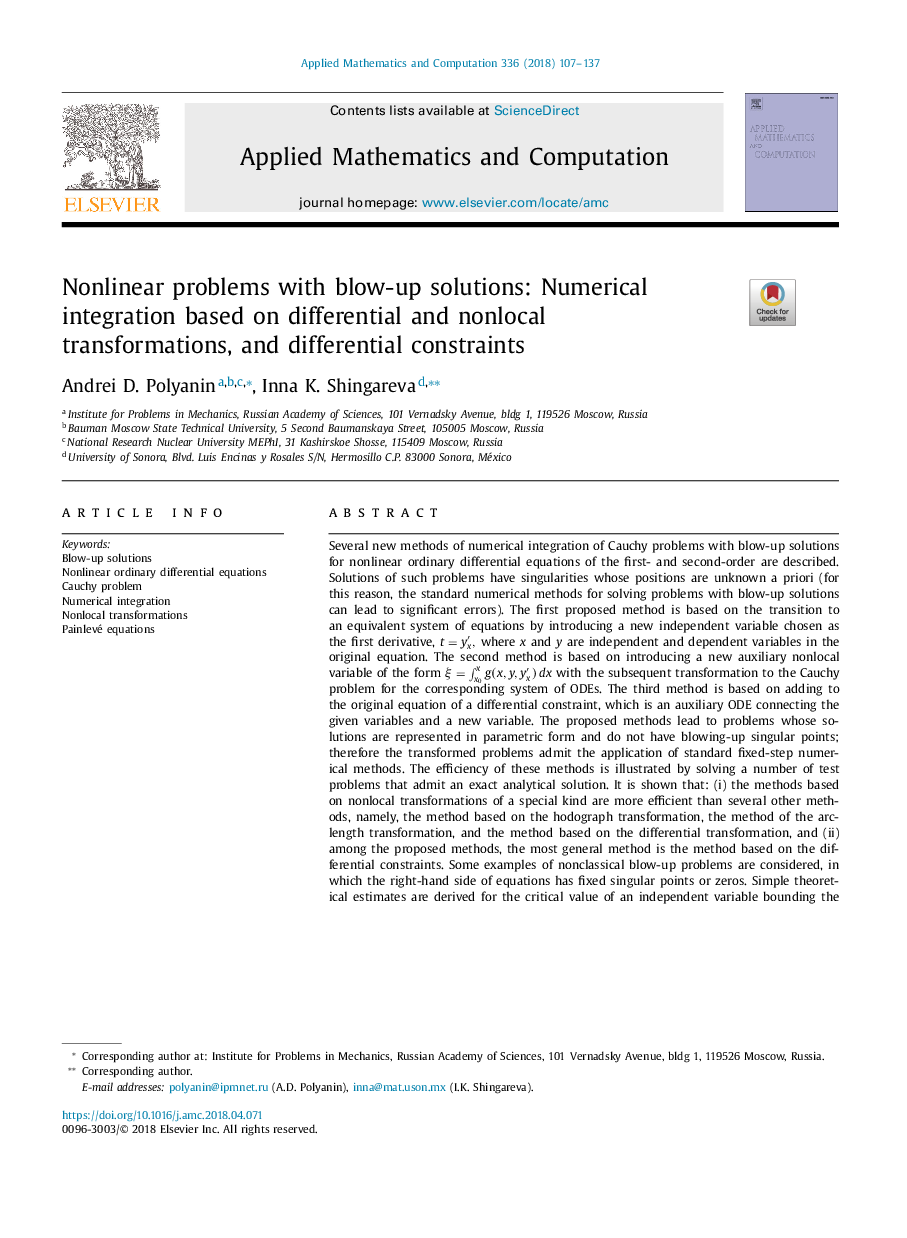| Article ID | Journal | Published Year | Pages | File Type |
|---|---|---|---|---|
| 8900721 | Applied Mathematics and Computation | 2018 | 31 Pages |
Abstract
Several new methods of numerical integration of Cauchy problems with blow-up solutions for nonlinear ordinary differential equations of the first- and second-order are described. Solutions of such problems have singularities whose positions are unknown a priori (for this reason, the standard numerical methods for solving problems with blow-up solutions can lead to significant errors). The first proposed method is based on the transition to an equivalent system of equations by introducing a new independent variable chosen as the first derivative, t=yxâ², where x and y are independent and dependent variables in the original equation. The second method is based on introducing a new auxiliary nonlocal variable of the form ξ=â«x0xg(x,y,yxâ²)dx with the subsequent transformation to the Cauchy problem for the corresponding system of ODEs. The third method is based on adding to the original equation of a differential constraint, which is an auxiliary ODE connecting the given variables and a new variable. The proposed methods lead to problems whose solutions are represented in parametric form and do not have blowing-up singular points; therefore the transformed problems admit the application of standard fixed-step numerical methods. The efficiency of these methods is illustrated by solving a number of test problems that admit an exact analytical solution. It is shown that: (i) the methods based on nonlocal transformations of a special kind are more efficient than several other methods, namely, the method based on the hodograph transformation, the method of the arc-length transformation, and the method based on the differential transformation, and (ii) among the proposed methods, the most general method is the method based on the differential constraints. Some examples of nonclassical blow-up problems are considered, in which the right-hand side of equations has fixed singular points or zeros. Simple theoretical estimates are derived for the critical value of an independent variable bounding the domain of existence of the solution. It is shown by numerical integration that the first and the second Painlevé equations with suitable initial conditions have non-monotonic blow-up solutions. It is demonstrated that the method based on a nonlocal transformation of the general form as well as the method based on the differential constraints admit generalizations to the nth-order ODEs and systems of coupled ODEs.
Keywords
Related Topics
Physical Sciences and Engineering
Mathematics
Applied Mathematics
Authors
Andrei D. Polyanin, Inna K. Shingareva,
